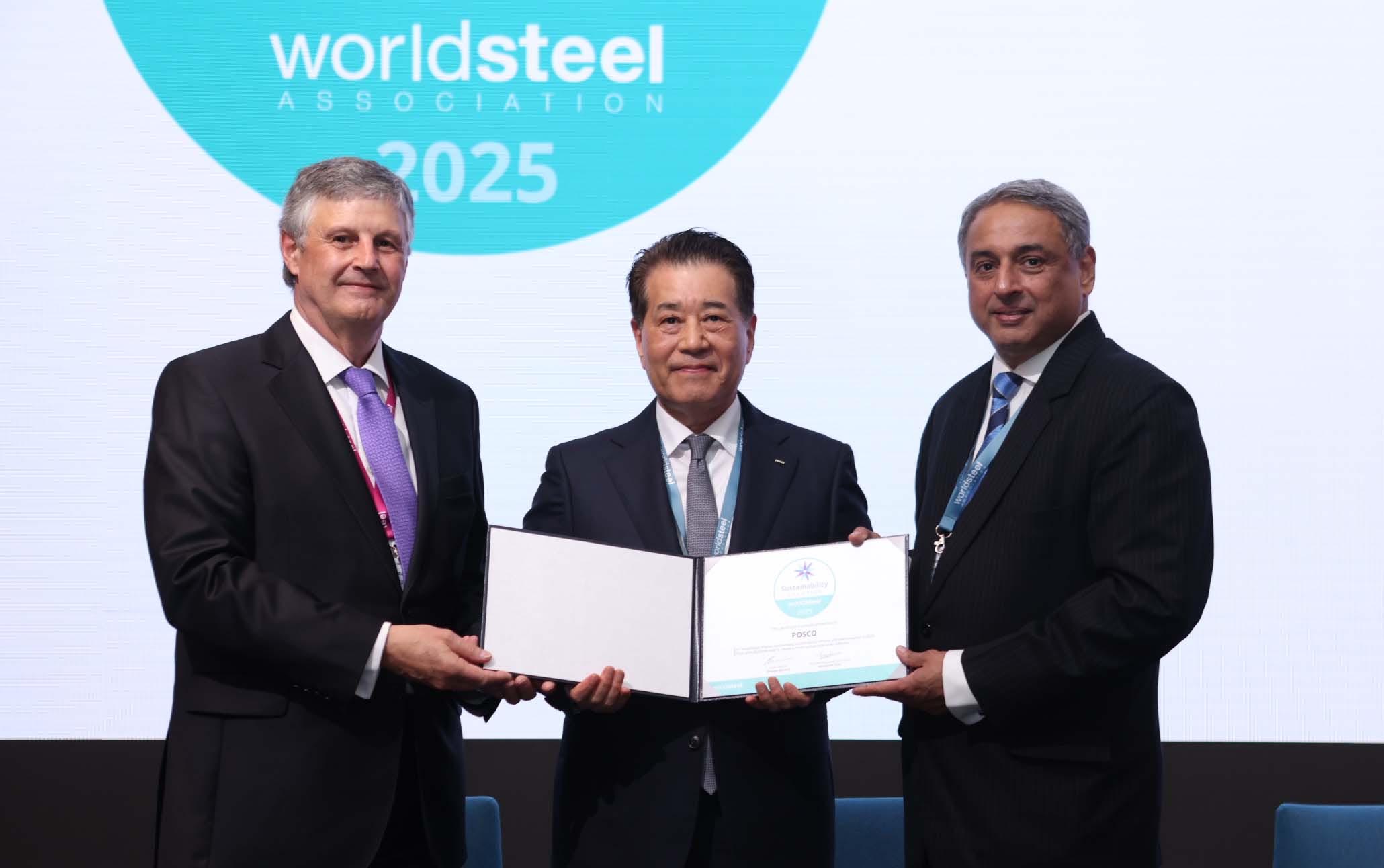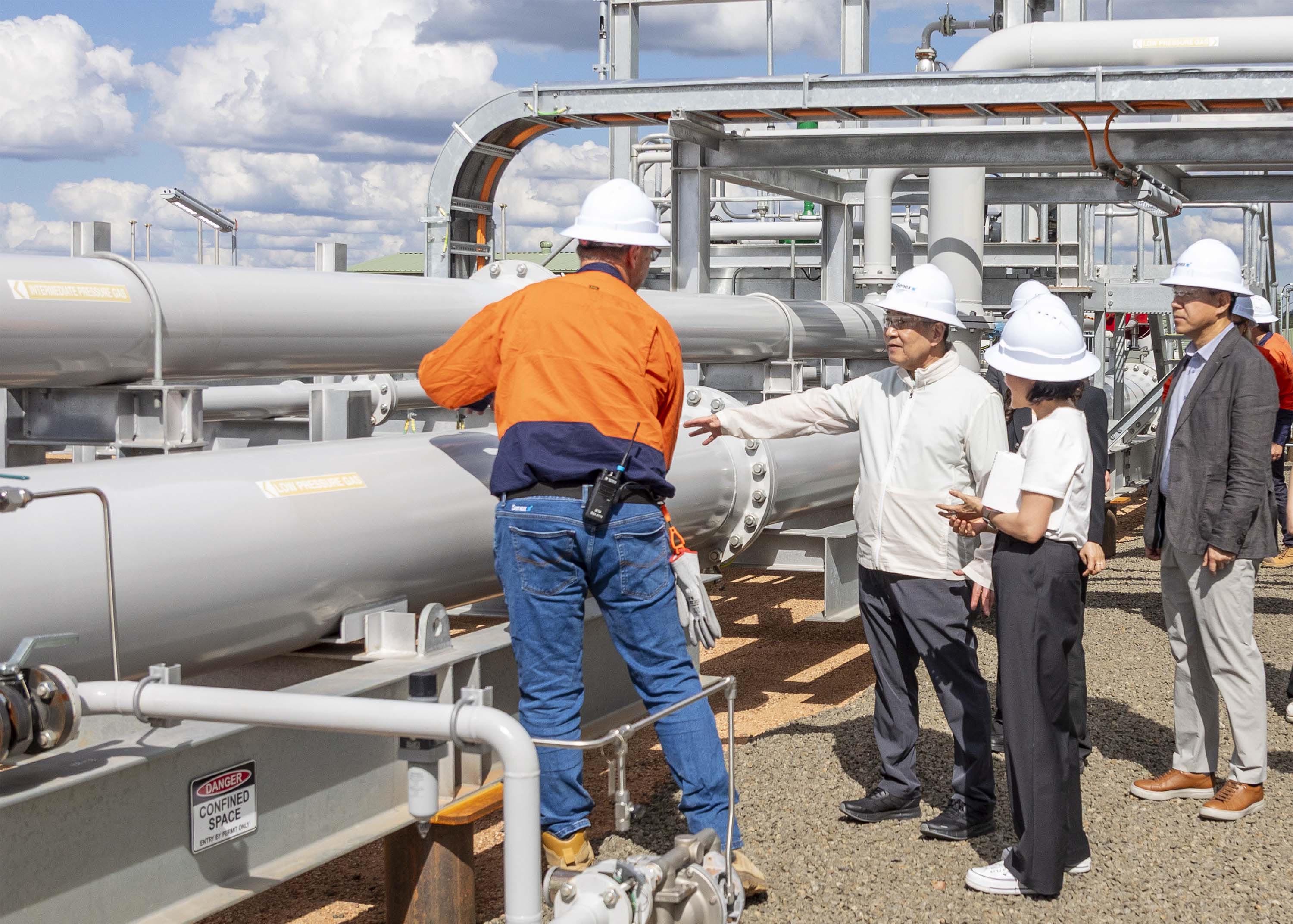Attended World Steel Association Executive Committee as Korean representative… Discussed development strategies and collaboration with global steel industry leaders
Chairman Chang: “Global collaboration must be expanded for low-carbon steel production process development and carbon reduction”
Visited the onshore gas field group company, Senex Energy… Inspected the global energy value chain business, including natural gas development
POSCO Group Chairman In-hwa Chang embarked on a three-day global management tour to Australia starting April 7 to strengthen steel business competitiveness and energy value chains.
Chairman Chang attended the World Steel Association’s first-half regular meeting in Sydney, Australia, and met with global steel company representatives to discuss international steel business issues, including the integrated steel mill in India and technological development cooperation plans. He then moved to Senex Energy’s gas field in Queensland to inspect the natural gas upstream business site.
At the World Steel Association Executive Committee meeting held on April 7, Chairman Chang represented the Korean steel industry in discussions about major issues facing the global steel industry, including carbon reduction. He suggested development directions for key agenda items of this executive committee meeting, including △ environmental improvement effects of low-carbon processes and △ global standardization of carbon emission measurement criteria.
The World Steel Association is a global organization established with the goal of mutual understanding and development in the steel industry, with a total of 157 member companies, including steel companies worldwide, regional steel associations, and research institutes.
That day, Chairman Chang emphasized the need to expand global cooperation at the association level in the field of low-carbon processes, stating, “As global steel companies are pursuing the development of various carbon reduction technologies, we must expand collaboration among global steel companies for the development of low-carbon steel production processes, carbon reduction, and expansion of future demand.”
In particular, Chairman Chang also sought new opportunities by meeting with CEOs of global steel companies to overcome the uncertain global steel industry environment and to cooperate on joint ventures and technology development. He had multifaceted discussions with Jayant Acharya, President of India’s JSW Steel, about integrated steel mill joint ventures. He consulted with Liu Jian, Co-President of China’s Hesteel Group, on ways to strengthen cooperation for joint ventures currently operating in China.

▲POSCO was selected as a Sustainability Champion for the fourth consecutive year. From left: Edwin Basson, Secretary General of the World Steel Association; In-hwa Chang, Chairman of POSCO Group; Narendran, Chairman of the World Steel Association and Chairman of Tata Steel.
At the World Steel Association members’ meeting held the next day, POSCO was selected as a Sustainability Champion for the fourth consecutive year. With this award, POSCO once again solidified its position as a leading company in the ESG field in the global steel industry.

▲POSCO Group Chairman In-hwa Chang (second from left) inspects operations at Senex Energy’s gas field in Queensland, Australia, on April 9.
Subsequently, Chairman Chang visited the Senex Energy gas field site in Queensland, Australia, on the 9th. Senex Energy is an onshore gas field representing the upstream portion of POSCO Group’s natural gas business, which was acquired by POSCO International in 2022 for 442.42 million Australian dollars (approximately 400 billion won).
Senex Energy is pursuing a project to expand natural gas production from an annual 20PJ (petajoules) to 60PJ (equivalent to approximately 1.2 million tons of LNG) by 2026. Once the production expansion is completed, it is expected to supply 10% of eastern Australia’s domestic natural gas demand.
Meanwhile, as Chairman of the Korea-Australia Economic Cooperation Committee, Chairman Chang contributes to close economic cooperation and industrial competitiveness enhancement between the two countries, beyond traditional resource sectors such as minerals and energy, to future business areas.
